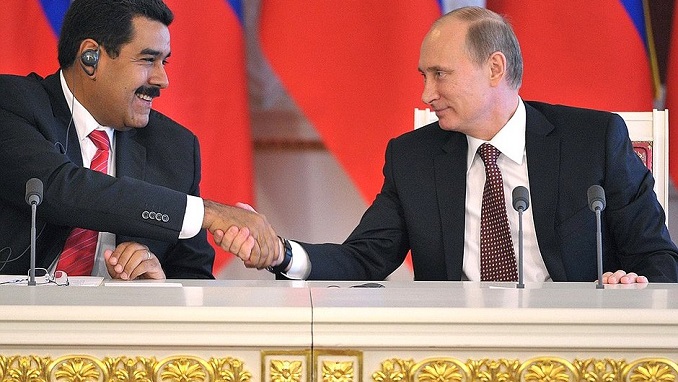A senior U.S. official warned this week that the United States will “take action in response to growing Russian support for Venezuelan President Nicolas Maduro,” S&P Global Platts reported.
“We are looking at additional sanctions, personal sanctions, economic sanctions that we think will bring more pressure,” Elliot Abrams, the State Department’s Venezuela envoy, told reporters.
Abrams, who did not specify what the sanctions would be, said the U.S. had been looking closely at Russia’s role in Venezuela and would not allow the level of support to go unchecked.
President Donald Trump’s administration has sanctioned Maduro’s regime and called it a dictatorship after he was re-elected in 2018 in elections widely seen as fraudulent.
Abrams admitted that the U.S. had underestimated the support Maduro received from Russia and Cuba, saying that the two countries had supplied Venezuela with thousands of intelligence agents. Cuban and Russian assistance “has proved, I think, to be the two most important pillars of support for the regime, and without which it wouldn’t be there,” he said.
Abrams did not speculate on whether Russia was involved in pushing Maduro to take control of the opposition-majority National Assembly on Sunday, which Washington currently considers the only democratic body in Venezuela.
Police had prevented opposition leader and self-proclaimed interim president Juan Guaido from entering the parliament. On Tuesday, Guaido and his allies burst through the legislative palace’s doors minutes after a pro-government group led by lawmaker Luis Parra, who had claimed the presidency of the body, scurried to a next-door building for refuge.
Maduro holds actual power but Guaido’s claim to the presidency is recognized by more than 50 countries, including the United States and many European nations.
Among Maduro’s remaining supporters are Russia, North Korea, and Cuba.
Maduro “is left with Cuba, Russia, China and a few odd dictatorships around the world, but he is losing support not only on the right, not only in the center but on the left in Latin America,” Abrams added.












